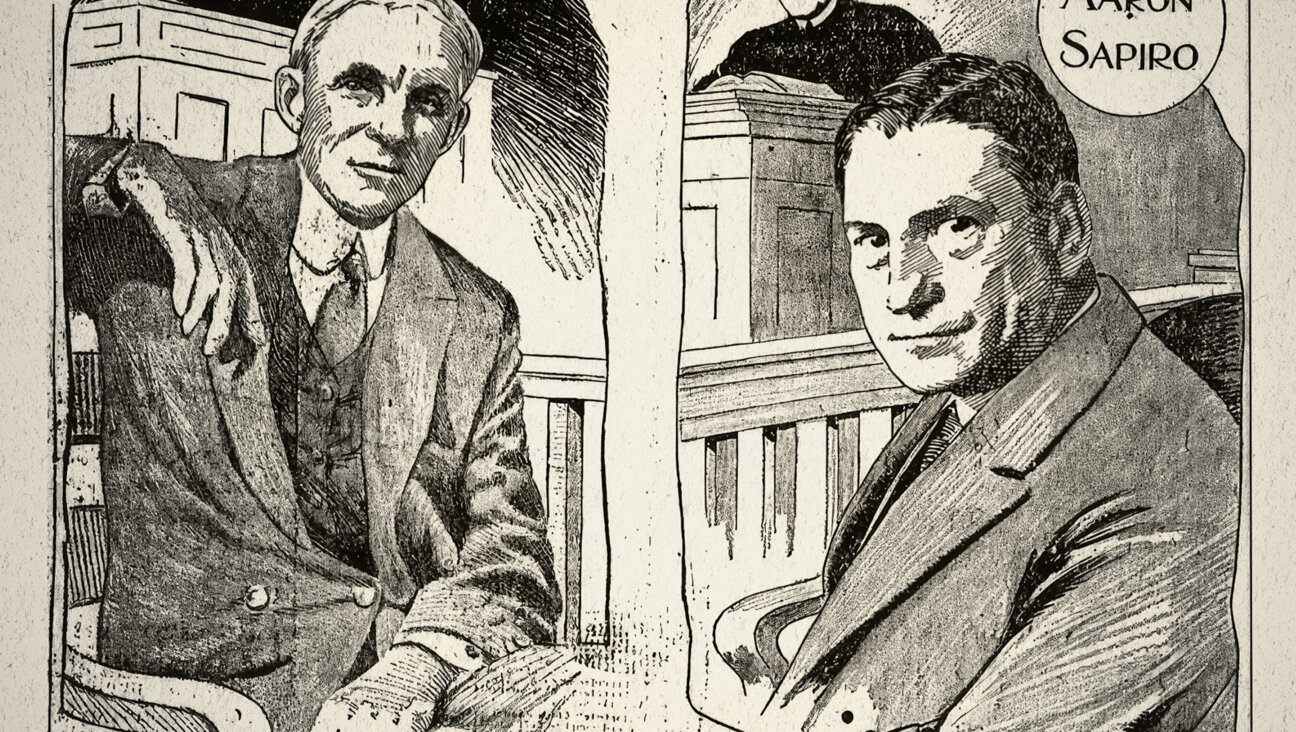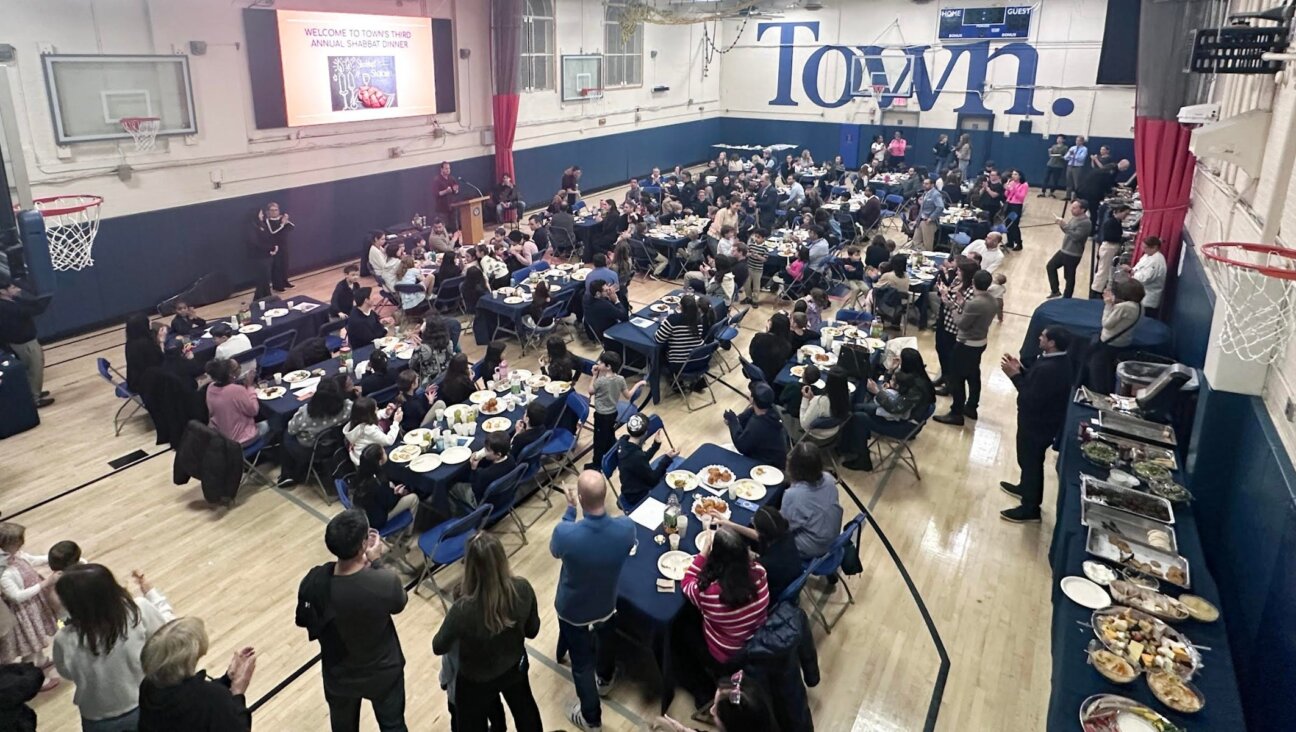Gleanings
Below is an excerpt from “Survivors: Seven Short Stories,” by Chava Rosenfarb, which will be out this October from Cormorant Books Inc.
I was happy to emigrate to Canada, which I considered a land “far from God and from people” — by which I meant former concentration camp inmates — where I would be unlikely ever to be confronted by an accusing finger. In fact, when I first landed, I was one of the few survivors to have reached these shores. Later I realized that I had only been among the first swallows. Soon the others started to arrive in their thousands. The entire American continent swarmed with them. Commemorations, memorial evenings, remembrance ceremonies were attended by masses of people. Books began to appear on the subject of the Holocaust, all of them providing detailed descriptions of the tragedy. There were so many books that they filled entire libraries. But nobody tried to get to the bottom of the particular tragedy of the Jewish kapos.
I did not read these books. I knew more than they could ever tell. I did not go to the various commemorations and memorial evenings. I needed no one to remind me of what had happened. I remembered on my own and only too well. Even if I had been tempted to attend a Holocaust memorial, I could not have given in to the urge for fear that someone might recognize me.
As soon as I arrived in Montreal, I went to work in a factory, and in the evenings I diligently studied English. With the first money I earned, I went to a plastic surgeon and asked him to remove the tattooed number from my forearm. I did not see the point of advertising where I had been. Of course I knew that it was easier to remove the tattoo from my skin than to erase the mark of Cain from my soul. But what went on in my soul had the advantage of not being visible. Outwardly I inhabited a new skin, a new identity, which could disguise whatever I found convenient to disguise.
Because I was afraid of being alone, I tried to make contact with the local Jews, but we had no common language. They knew almost nothing about the Holocaust. What they did know they did not understand. I was drawn to my own kind of people, in fact to those very people whom I should have been avoiding like the plague. And so I made friends with other new immigrants. A few of these I suspected of having been kapos, but most of the others had survived the war on the Aryan side in Poland, and after the war had made their way to Germany, where they feathered their nests by profiteering and trading in black market merchandise. When the occupation forces began to wrest some order out of the chaos of a devastated Germany, my friends found themselves with nothing more to do, so they came here. I soon realized that what tied me to these people mattered less than what separated me from them. They were vulgar moneybags with base appetites. I longed for culture. I needed it as a bridge to throw across the abyss of my war years and link me to my home and my happy childhood. I needed culture as a form of purification.
It was at this time that I really began to suffer from insomnia. During the course of the day I wandered about as if I were drunk. I found myself inhabiting two worlds at the same time, tormented by all kinds of visions and hallucinations. In the faces of people who passed me in the street, I saw the features of camp inmates. Every chimney of every factory seemed to me to be the chimney of the crematorium. In every dog that ran past me, I recognized the German shepherds and Doberman pinschers of the camps who had been taught to savour human flesh. The sight of any man in uniform — a policeman, a fireman — brought the SS to my mind. And if I happened to be travelling by train and the whistle blew, I imagined that I was again travelling with my loved ones in the cattle car, drawing ever nearer to the station of the concentration camp.
The worst of it was when I saw myself in flashback repeatedly striking someone who resembled one or another of the women I had known in the camp. I would see my hand go up and down, up and down, like the hand of an automaton. I went about with an ache in the muscles of my right arm, as if I had been carrying a heavy weight. The palm of my hand burned. I had to quickly rid myself of these afflictions because they endangered my work at the factory and, what was just as important, my learning to write English. I found it difficult to hold a pen in my hand.
For these reasons I became a frequent visitor at the doctor’s office. With a tactful little smile on his face, the doctor informed me that I was suffering from pernicious hypochondria, which was not amenable to treatment. But since the sleeping pills which I had brought with me from Germany had long since run out, he kept me supplied with more. They helped me very little, because I took them so sparingly. I had to be careful of maintaining a sufficient supply of pills against the eventual hour of my reckoning. Having my little stash of pills made me feel more secure.
And in order to feel still more secure, I became obsessed with beautiful clothes. I had an urge to be constantly changing my garments, rearranging my appearance, but my earnings did not permit me the luxury of a constant change of clothing. It was the summer of 1950. I heard that JIAS was distributing used clothes for newly arrived immigrants. It was clear to me that a second-hand dress donated by a wealthy Montreal woman would look better on me than some cheap rag that I could afford to buy on my own, especially since I had a good figure and even cheap clothing looked expensive and elegant on me. Yes, I looked good, despite my nightmares. I was like the proverbial apple, beautiful and healthy on the outside, wormy and rotten inside.
So one day I paid a visit to the JIAS storerooms. I walked into a room full of racks of clothing. There were dresses, suits, skirts, and blouses, all tightly packed together. The sight made me dizzy. I pounced on each full rack, moving rapidly from one to another, and this was how my restless gaze came to fall on the figure of a familiar-looking woman as she too rummaged among the clothes racks. My heart stopped. My first impulse was to get away, but my feet refused to move. I could not take my eyes off the woman’s profile. The face of that monster Albert had been erased from my memory, but Edgia’s face, which I had glimpsed only twice in my life, I remembered so well that it was not difficult for me to recognize her, despite her altered appearance. Although her complexion still had a sallow hue, her profile was rounded and her hair was of normal length. I felt myself drawn to her face — the face of my own kindness.
I broke away from the spot where I was standing and threw myself at her. I pulled her into a corner. The yellowish cast of her face turned white as chalk; her head sunk down between her shoulders, just as it had during the scene of our first encounter near the camp latrine. She acted as if her life were still in my hands, but this time we were both trembling with anxiety.














